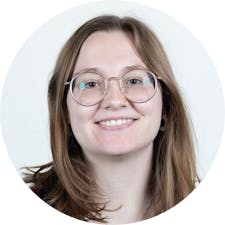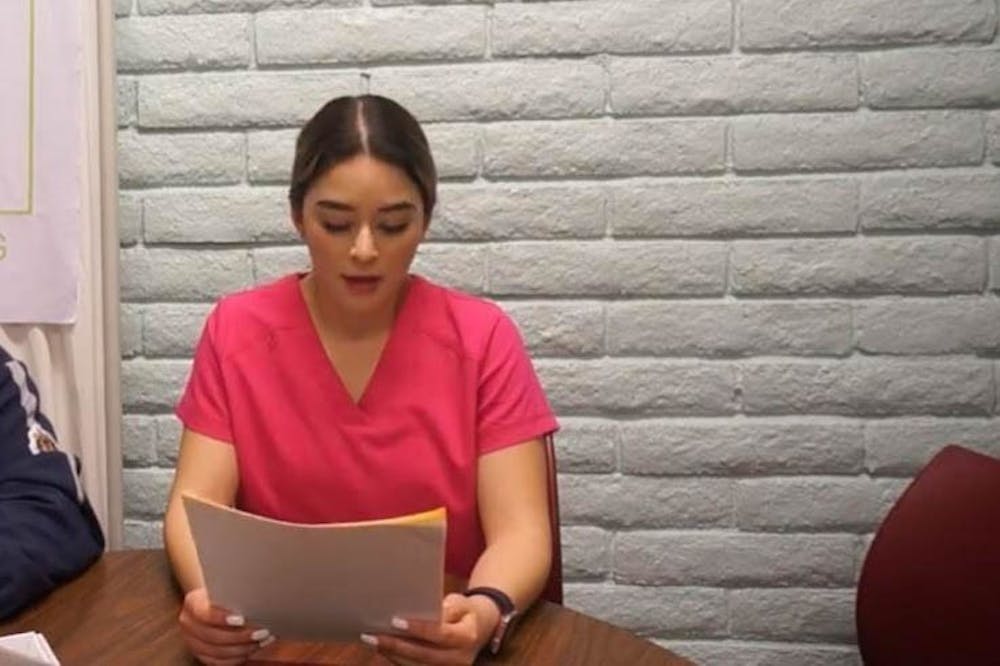Pre-health students at ASU are taking advantage of an opportunity through a volunteer health clinic to provide help to underserved communities and discover their goals in the field.
Phoenix Allies for Community Health is a nonprofit volunteer-run clinic that provides free healthcare to medically marginalized individuals in the Phoenix area. About 25 ASU students intern or volunteer at PACH during any given semester to provide services to patients, according to Mikayla Isosaki, co-director of clinical operations.
Nargish Patwoary, a first-year graduate student studying biology, began volunteering at the clinic as an undergraduate student in 2019, helping with community outreach. She was promoted to serve as board member at large on the clinic’s board of directors the same year.
Patwoary said the grassroots nature of the organization was a perfect place for her to grow and advocate for community members.
"The fact that they see potential in ASU students who are just regular volunteers who wanted to take initiative and put them on the board is quite a big deal," Patwoary said.
She currently serves as secretary of the board and continues to help with outreach to expand the clinic. Patwoary is joined on the board by another ASU student, Marilyn Baez, who succeeded Patwoary as board member at large.
Baez, a senior studying biological sciences, started at PACH as an interpreter and scribe and was promoted to board member at large when she took responsibility for the clinic’s food pantry during the COVID-19 pandemic.
"I took on the position of getting an alliance set up with St. Mary's Food Bank, so we would get donations from them every Friday," Baez said. "It wasn't until then that I got asked to be a board member to be more involved in clinic decisions."
A 2020 report by the Arizona Department of Health Services identified 23 primary care areas in Maricopa County as medically underserved areas, including Mesa West and Central, Scottsdale South and Tempe North. Most patients coming into PACH are low income, don’t speak English and need health education as well as medical care.
Those patients have helped Patwoary and Baez learn more about their goals as future physicians.
"I learned that our patients are really strong people, they are resilient people, but I think we also need to know that we shouldn't pity them," Patwoary said. "If anything, we should empathize with them, and acknowledge there's a barrier and an axis of systemic oppression there."
Although PACH saw a decrease in volunteers and patients during the COVID-19 pandemic, the clinic is now slowly returning to in-person appointments, offering COVID-19 vaccines to its patients and planning to expand clinic operations.
Baez said transitioning back to in-person appointments has improved care for patients, as many prefer face-to-face interactions compared to having them over the phone.
Patwoary is working on a partnership between PACH and the UA College of Medicine in downtown Phoenix to get medical student volunteers to help run the clinic, conduct research and provide service to asylum seekers.
"Hopefully it turns into this long-term and concrete partnership with UA that increases our capacity to carry out our current operations," Patwoary said. "We would be able to be open longer because currently, we're only open three days of the week, so we could extend the day a bit longer or open on another day."
Isosaki, an ASU alumna, said PACH's unique opportunities and its learning environment make the clinic stand out as a volunteer experience for pre-health students. Patwoary and Baez have taken advantage of those opportunities and encourage others to do the same.
"I feel like people lose sight in getting involved with bigger clinics or paid positions, but volunteer work is essential, it builds character," Baez said. "You're literally investing your time into a community that needs your help."
Reach the reporter at rpriest2@asu.edu and follow @reaganspriest on Twitter.
Like The State Press on Facebook and follow @statepress on Twitter.
Continue supporting student journalism and donate to The State Press today.

Reagan Priest is a managing editor, overseeing and working with the six digital desks at The State Press. She previously worked as a social justice reporter for Cronkite News and as a digital production intern at The Arizona Republic.





